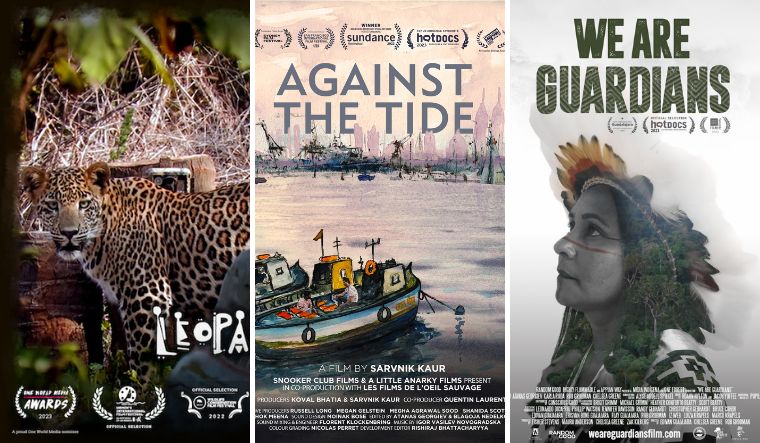The All Living Things - Environmental Film Festival, India's first and the largest environmental film festival, was held in various cities across 22 states from December 1 to 10, wooed filmmakers and environmentalists from all over the globe. What started off as a social enterprise in 2020 now has a full-fledged team that works to put the festival in place. The organisers are confident that if they stay true to their core principle – ‘to drive impact through awareness at scale’ – revenue will sustain and grow.
This year's festival, the fourth edition, was available for online viewing for those who had registered on ALT EFF website. This year’s film lineup has 60 movies from 50 countries including features, shorts, animations and student films.
The jury included Kartiki Gonsalves, Oscar winning director of The Elephant Whisperers; David Holmgren, the co-originator of permaculture; Satyajit Bhatkal, the director of the Aamir Khan hosted Satyamev Jayate; and environmental filmmaker Mike Pandey.
Among the films shown were Deep Rising produced and narrated by Jason Mamoa; and We Are Guardians produced by Leonardo DiCaprio. The former explores the relationship between the oceans and life on earth through a metal company’s exploits; while the latter follows indigenous Amazon rain forest guardians Marçal Guajajara and activist Puyr Tembé as they fight to protect their territories from deforestation.
Other interesting features include Pleistocene, a duo striving to restore the Ice Age ecosystem; The Recycling Myth that explores how a fairy tale has been propagated by industry while it continues to pollute; and Dear Future Children about young activism worldwide.
The Indian lineup has Against the Tide, which is about the fraught friendship of two fishermen in Mumbai, and The Leopard’s Tribe, which documents the protests to protect the forests and the leopards against the Aarey Metro car shed project of Mumbai.
While one would imagine that a film festival such as this would venture into preachy territory, its organisers Kunal and Laura Christie Khanna said their belief that such content works well has been fortified over the years with films like All That Breathes and Against the Tide receiving global acclaim.
A rigorous scouting process is in place for choosing films. “…reaching out to our extensive network of production houses and film distributors globally… we work with film festivals around the world to look at their programming… and reach out to the film-maker community,” said Khanna. This year’s festival received 400 submissions.
While there are no noticeable gender or demographic divides when it comes to viewers, the organisers strive to bring in more stories that show the disproportionate impact of climate change on women and the growing anxiety among youth about the issue.
Miriam Chandy Menacherry, director of The Leopard’s Tribe, said it has never been a challenge to get youngsters to accept such films. “I find that the youth take an active interest in these screenings, they are wise enough to realise that we are handing over to them a messed up world,” she said.
Yes, there is a fine balance between entertainment and messaging that has to be maintained and Menacherry believes it comes from a combination of craftsmanship and commitment. “A documentary demands a lot of courage and tenacity over a long timeline to capture moment after moment…” she added.
In the post-pandemic world, there is a “heightened consciousness of the world around us and the inter-connectedness of life and its frailty. This is a time that environmental films resonate in a way that they never did before,” said the Chennai-born filmmaker.



